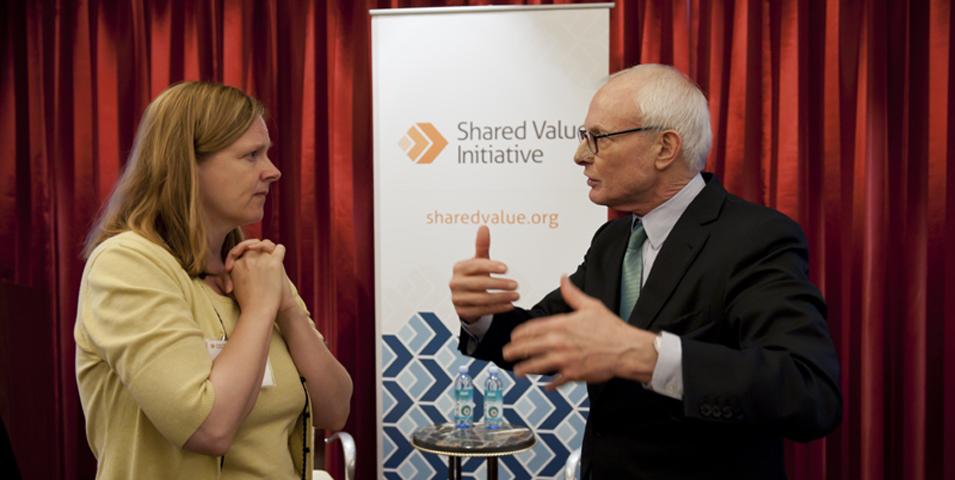
At the peak of the Global Financial Crisis in 2009, an already faltering trust in business sank to 36% according to the Edelman Trust Barometer. It’s recovered a bit but confidence in business is a far cry from the days when a job for a company like General Motors was a badge of honour. Trust in government plumbed the depths at 30%. What happened? Crisis or no crisis, companies are on the nose, no longer respected community members, too often seen as providers of products at any cost.
I’m going to introduce a concept called ‘Shared Value’ in a minute. This is the first of a series of articles we’ll produce on the topic. But first let’s try and answer the question.
Companies once represented wealth, stability and opportunity. They employed at the local plant and gave back locally in the form of healthcare, community sponsorships and family festivals. Other local businesses enjoyed the flow-on effects of local wealth generation. Governments were also trusted to provide a financial and social safety net, to ensure the private sector did what it was told.
Fast forward to the 80s and 90s. Outsourcing killed local jobs and local wealth generation receded, globalisation was blamed but the profits continued to grow. They had to because shareholders are in the market for a good time, not a long time. Returns now not tomorrow! And so followed management thinking: profits in ever shorter timeframes, cut staff, cut costs. Meanwhile government was told it had to be smaller and, at least in the Anglosphere, dutifully obliged. That meant outsourcing more functions to business and also non-government organisations (NGOs). In effect, welfare and the risks that go with it have been handed to church and charity organisations, many still struggling to marry business acumen with a good heart. It’s placed them in a consistently combative relationship with government as they lobby for funding.
Some healthy social activism and the governance crisis that followed Enron was enough to scare corporations into appeasing disheartened communities. Corporate social responsibility was born and corporate leaders lined up to walk the triple bottom line. It quelled the anger of the masses and was a serious change in business thinking.
Then came the GFC. And a lot of ground on trust was simply obliterated.
So where to next? Harvard management guru, Michael E. Porter, and Mark R. Kramer have proposed a concept, called ‘shared value’. It’s very early days – too early to call it a model – but we think it has great potential to bring the corporate and NGO sectors together in a way that leverages each side’s credibility, knowledge, and access to generate wealth, which is ultimately linked to creating healthy communities.
Here’s their words and, if your interest is piqued, watch the video. Then comment below. We want to know what people are thinking. Is it a new paradigm or CSR rebadged?
“Capitalism is an unparalleled vehicle for meeting human needs, improving efficiency, creating jobs, and building wealth. But a narrow conception of capitalism has prevented business from harnessing its full potential to meet society’s broader challenges. The opportunities have been there all along but have been overlooked. Businesses acting as businesses, not as charitable donors, are the most powerful force for addressing the pressing issues we face. The moment for a new conception of capitalism is now; society’s needs are large and growing, while customers, employees, and a new generation of young people are asking business to step up.
The purpose of the corporation must be redefined as creating shared value, not just profit per se. This will drive the next wave of innovation and productivity growth in the global economy. It will also reshape capitalism and its relationship to society. Perhaps most important of all, learning how to create shared value is our best chance to legitimize business again.”

